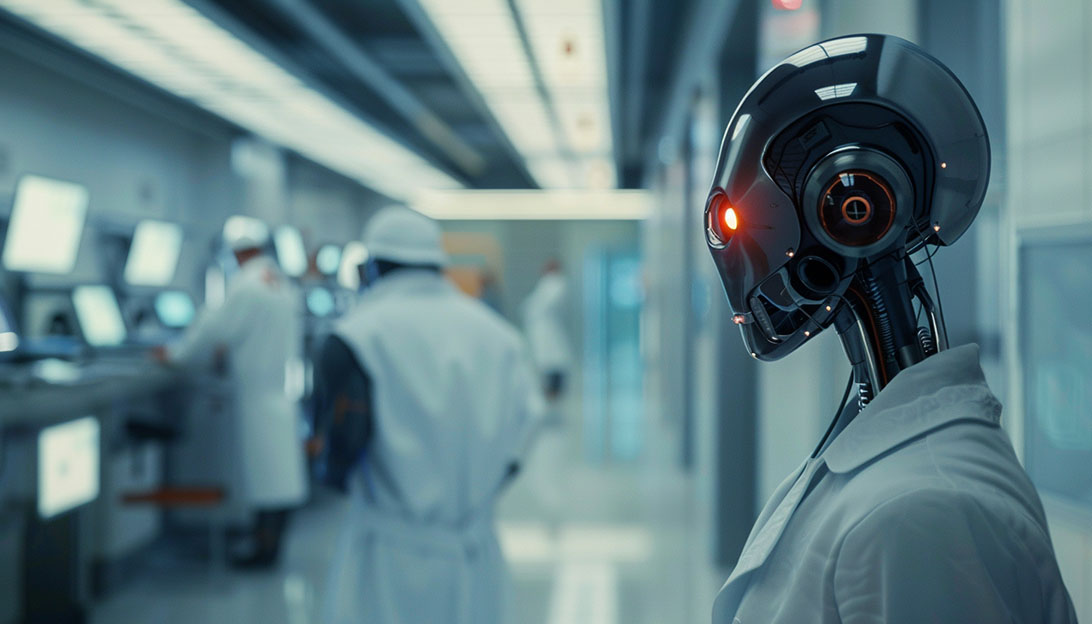The promise of AI in healthcare will have both positive and negative impacts on patients and health and medicine workers.
Imagine a world where diseases are diagnosed with unprecedented accuracy, where treatments are tailored to individual patients, and where medical professionals have the support of super-intelligent systems to enhance their decision-making processes. This is the promise of artificial intelligence in medical advancements.
Positive aspects of AI in healthcare
Firstly, let’s delve into the positives. AI has revolutionized medical imaging, allowing for faster and more precise diagnoses of conditions like cancer, stroke, and heart disease. Through deep learning algorithms, machines can analyze vast amounts of medical data, spotting patterns and anomalies that might elude even the most seasoned human eye.
Moreover, AI-driven predictive analytics are enabling proactive healthcare interventions. By analyzing patient data, AI can forecast potential health issues before they escalate, leading to more effective preventive care strategies and improved patient outcomes.
In addition, AI is empowering medical research by accelerating drug discovery processes and facilitating personalized medicine. By analyzing genetic data and clinical records, AI can identify optimal treatments for individual patients, minimizing adverse reactions and maximizing efficacy.
Negative aspects of AI in healthcare
However, it’s crucial to acknowledge the potential drawbacks. One major concern is the ethical implications surrounding data privacy and security. With AI systems relying heavily on vast amounts of sensitive patient data, there’s a risk of breaches and misuse, raising significant privacy concerns.
Moreover, there’s the issue of AI bias. If the datasets used to train AI algorithms are biased or incomplete, the resulting decisions may reflect those biases, leading to disparities in healthcare delivery and exacerbating existing inequalities.
Finally, there’s the ever-looming specter of job displacement. While AI augments the capabilities of healthcare professionals, there’s fear that it may eventually replace certain roles altogether, leading to unemployment and potentially widening socioeconomic disparities.
In conclusion
While the advancement of artificial intelligence in medical advancements holds immense promise for improving healthcare outcomes, it’s essential to proceed with caution. By addressing ethical concerns, mitigating biases, and ensuring equitable access, we can harness the full potential of AI to revolutionize medicine while safeguarding the well-being of patients and healthcare professionals alike.
Read more on the AI impact on jobs read Artificial Intelligence will take our jobs
Also listen in with this great audio book from Reid Blackmon. Ethical Machines: Your Concise Guide to Totally Unbiased, Transparent, and Respectful AI
Or visit our list of best reads for the topic of Artificial Intelligence and Machine Learning ethics.
1 2 3 4 5 6 9 AI AI news ant art Artificial Intelligence automation borrow borrow a minute chatgpt coffee break Control Fiction fire water bean fiscal responsibility hit how many minutes How many minutes in a day how many minutes in a month how many minutes in a week how many minutes in a year Immersive Innovation ISS Machine Learning mental break minute fiction minute read model R rain risk SaaS short blog short story skannar story Trust where am I now


